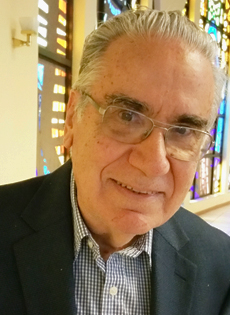
Serving the Church
Monday, August 5, 2019
*Antonio Fernandez
I recently had the privilege of facilitating two workshops, one for lectors and one for extraordinary ministers of Holy Communion. In both lectures, I wanted to convey the essential requirement, not only for these two ecclesial ministries but also for every minister or believer in the Catholic Church: the mandate to become servants of others.
Ministry in the Church, at all levels and orders, is a diakonia: It is always a service, a service of love; humble, quiet, sometimes even ignored, but it is always a service to God and neighbor.
From a very young age, I learned on my knees, in front of a holy priest-bishop, the need to assimilate and incorporate into my life as a committed Catholic the words of Jesus during the Last Supper: “I have not come to be served, but to serve.” (cf. Mt. 20, 28)
It is not always easy. It is very difficult to leave behind the pleasure of hearing people thanking us for what we do or telling us they appreciate the good work that we do in the Church or any other place. It is also logical, and polite, to show gratitude and recognize the good and the favors we receive. Such expressions of courtesy and gratitude often become samples of filial love, and as such, we must accept them with humility and without seeking them.
However, the difference is precisely in our motivation when we render a service. We must ask ourselves if we are doing it because we like to be esteemed, or because we are the ones who appreciate others without expecting anything in return. Are we looking to be loved or are we delighted even more by loving others without ties or conditions?
In the answer to these questions, we will know whether we do it to serve or to seek honor and gratification.
It is possible that service may require us to leave our comforts and routines, to give the most precious thing we possess: our time. Sometimes it involves doing something that we do not like and that we might even dislike. To do it without looking at whom we help, however, is to see the very face of Christ in those whom we serve.
It is necessary to change our way of thinking and see that what we are doing is not a favor but a grace that our neighbors grant us by giving us the opportunity to serve them. By serving them, we enjoy the privilege of serving and loving Christ.
With his example, his life, his actions, his words — because He loved us to the extreme — Christ has opened the pathway for us to serve, regardless of whether it is difficult, incriminating, or goes against the way the world is acting. All his life was in service to that love that He has for all.


Comments from readers